The furniture industry is rapidly evolving, and keeping up is no easy feat. My name is Roger, owner of Starborn Furniture, and I understand the struggle of staying ahead. That's why I've developed strategies to address common pains—such as market unpredictability and sustainability concerns—by turning them into opportunities for growth.
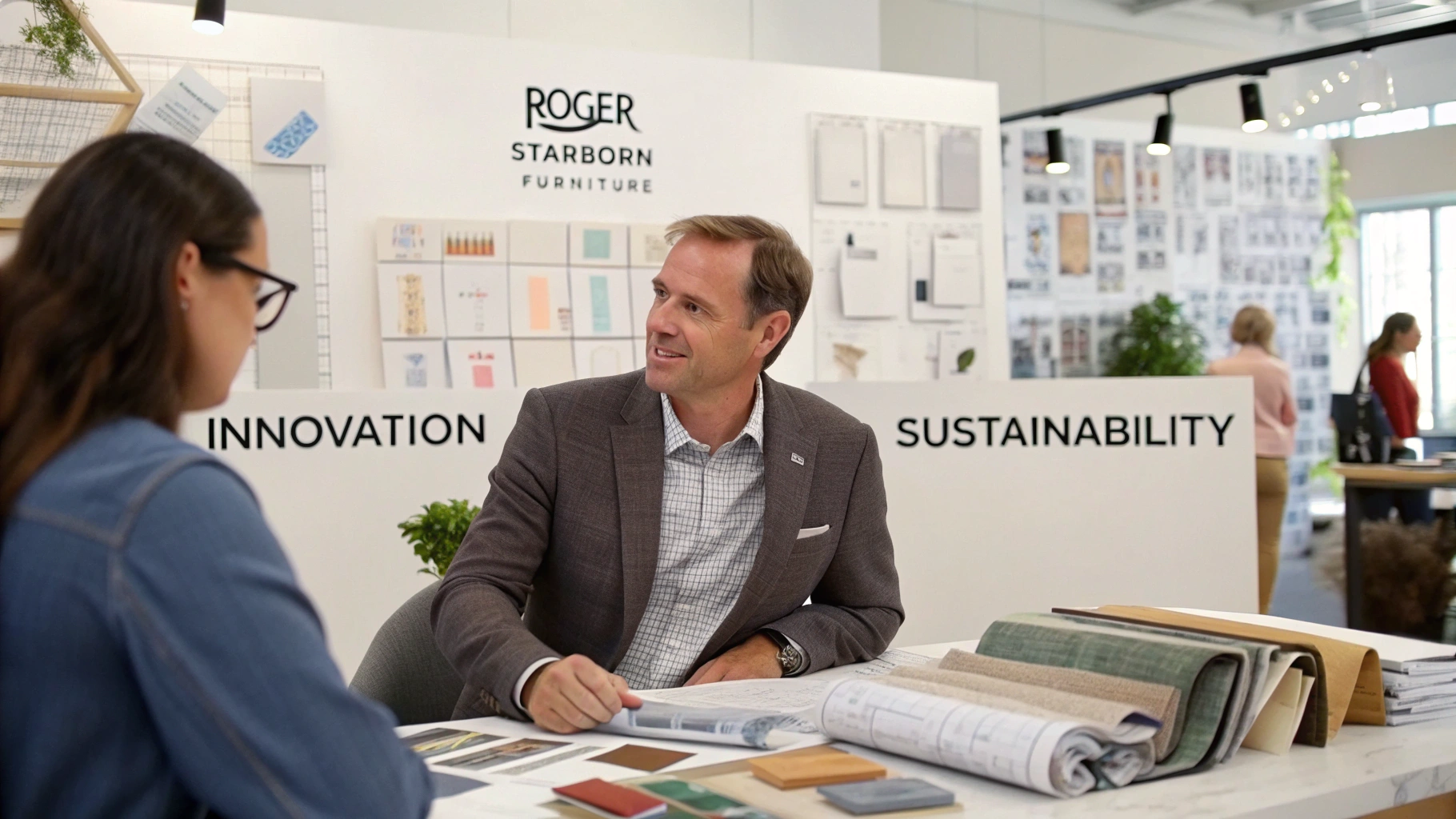
To create a winning social media strategy for furniture retail, one must first acknowledge the unique challenges and opportunities within the industry. Certifications, flexible production systems, and ecological collaborations are key aspects that can set a furniture brand apart. In this article, I will share insights on how these elements are incorporated into Starborn Furniture's platform, providing both value and differentiation.
Understanding the Importance of Certification Systems
Certifications are not just stickers on a product; they are the backbone of trust for our partners and customers. At Starborn Furniture, we have passed rigorous audits to meet both international and regional standards, ensuring that every piece leaving our factory aligns with quality and ethical expectations.
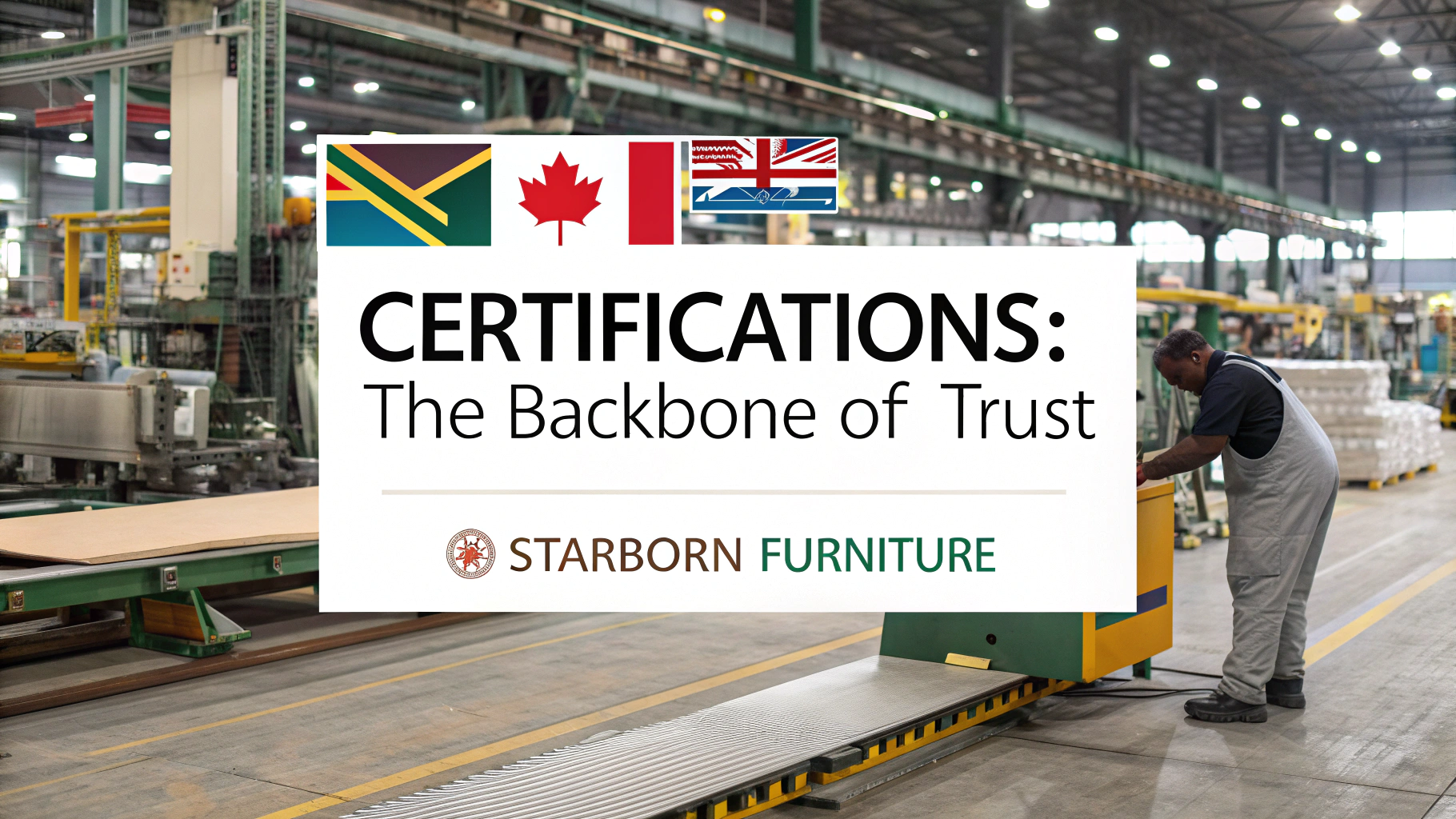
Industry Certification as a Trust-Building Tool
Customers often worry about product quality and ethical manufacturing practices. Industry certifications help us build the trust necessary to alleviate these concerns. For instance, by passing the BSCI ethical audit1, we demonstrate our commitment to both social and environmental responsibilities. One of our clients from Germany highlighted this trust-builder, attributing a 20% increase in customer inquiries to our certification transparency.
Complying with Regional Standards: EN 12520/125212 & JIS
Meeting different regional standards is a challenge we embrace at Starborn. Our compliance mechanisms are equipped to handle various certifications like EN 12520/125212 and JIS, ensuring safety and quality. For example, when entering the Dubai market, we adapted designs to meet Islamic cultural standards, offering a collection that resonated with local aesthetic preferences. This compliance not only boosted our credibility but also strengthened our market position there.
Flexible Production Systems for Market Responsiveness
In today's market, flexibility is key. At Starborn Furniture, we believe our production systems need to be agile to cater to changing demands. We focus on reducing lead times and maintaining reliability, ensuring our partners can trust us to deliver what they need, when they need it.
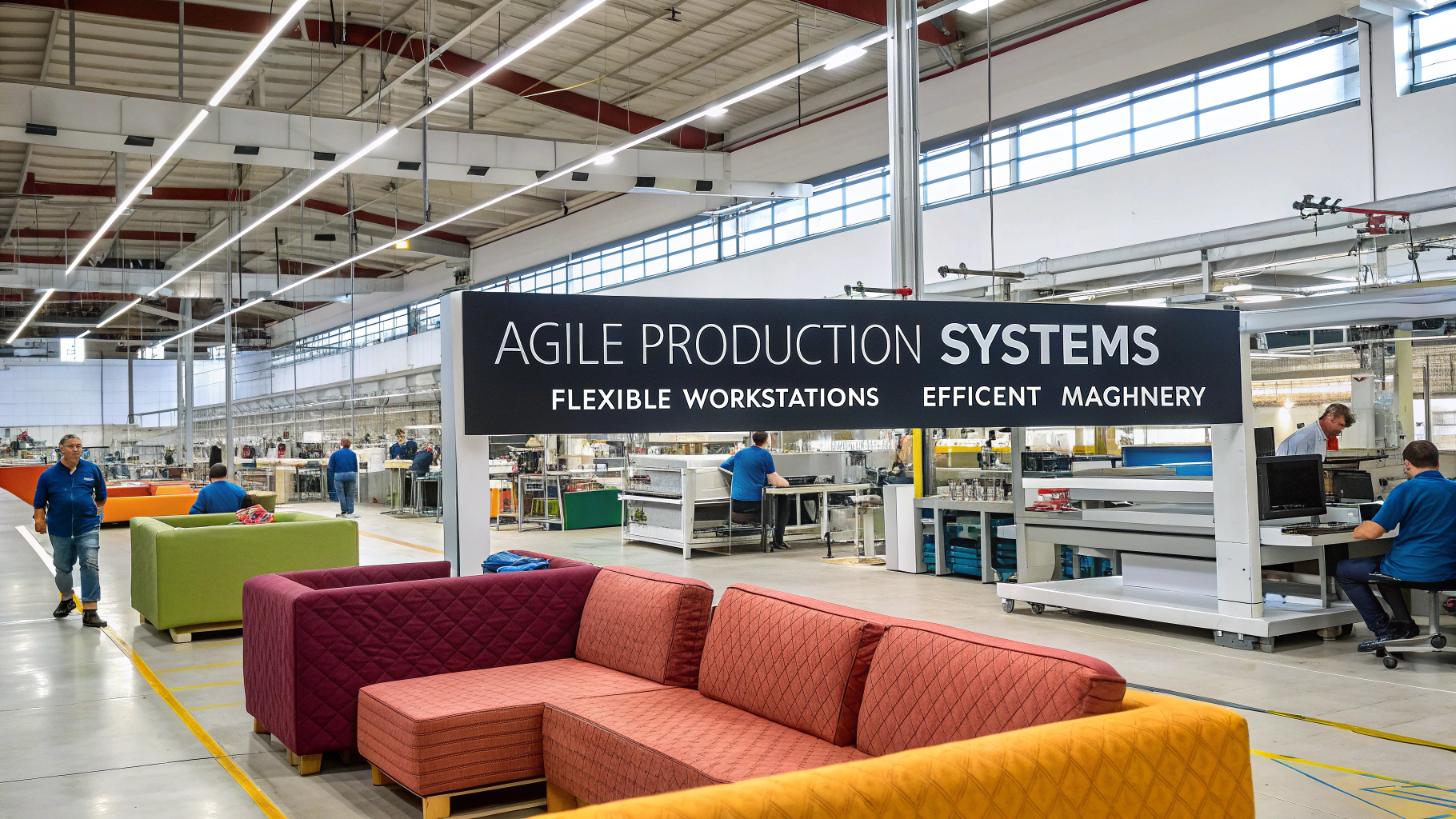
Optimizing Production for Quicker Turnarounds
One common pain point is long lead times. Data from our production dashboard allows us to anticipate market trends and adjust plans accordingly. Our flexible monthly scheduling enables us to efficiently manage over 2000 units. By using a C2M (Customer-to-Manufacturer) model, we integrate feedback to quickly tweak production plans, ensuring that our partners get products aligned with current market expectations.
Delivering Reliable and Consistent Outputs
Reliability in delivery is fundamental for retail success. One of our notable achievements is a streamlined logistics chain that ensures products are delivered within 30 to 45 days, based on order volume and customization needs. A client from the UK praised our consistency, noting a significant improvement in their store's inventory management after partnering with us.
Leveraging Ecological Collaborations for Sustainable Growth
Sustainability is no longer an option; it's an expectation. At Starborn, we don't just comply with sustainable practices; we lead initiatives that bring ecological value across our supply chain. This approach benefits all stakeholders involved, from manufacturers to the end customer.
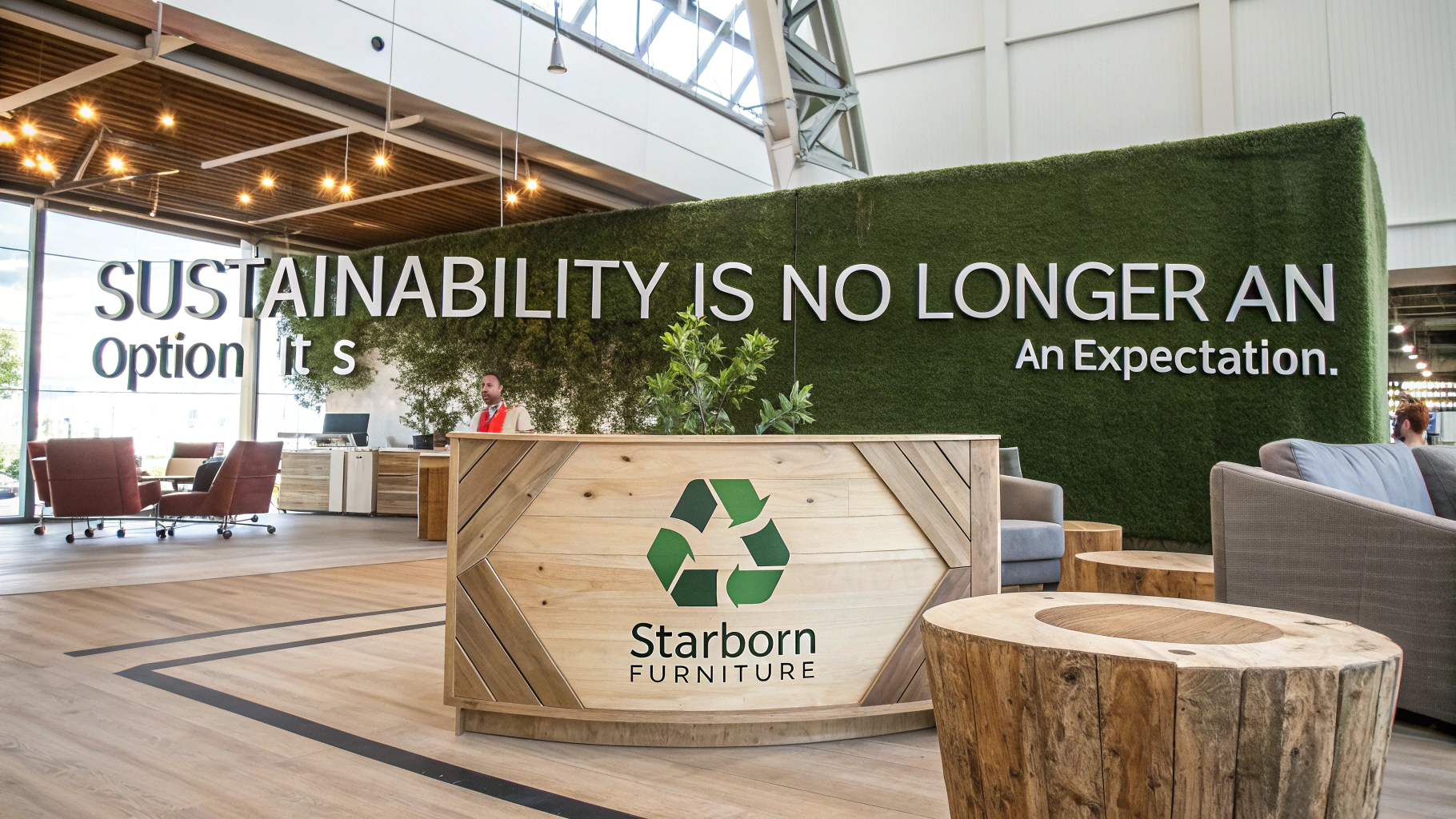
Complete Chain Collaboration for Ecological Value
Disconnected supply chains often miss opportunities for ecological growth. Our platform fosters partnerships that align interests across the chain. For instance, a project in France saw manufacturers, retailers, and designers collaborate to create eco-friendly furniture lines, reducing carbon footprints while enhancing each partner's market standing.
Integrating Sustainable Materials and Designs
The challenge of sourcing sustainable materials is real, but Starborn offers solutions. By leveraging a sustainable supply chain3, we source materials that minimize environmental impact. A retailer in Germany saw their eco-friendly product line flourish, attributing this success to our commitment to sustainable practices, thereby boosting their customer base significantly.
Maximizing Platform Connectivity for Designer Empowerment
Unique designs are essential for market differentiation. Our platform enables designers to access a library of rare styles, fostering creativity and innovation. A collaboration with a designer from the UK resulted in a bestselling line that was both innovative and completely sustainable, showing the power of connected creativity.
Building Transparent Supply Chains
Transparency is a cornerstone of trust in an industry often plagued by opaque operations. At Starborn, we prioritize openness by implementing a transparent supply chain model, ensuring that our partners and clients have clear insight into processes and practices.
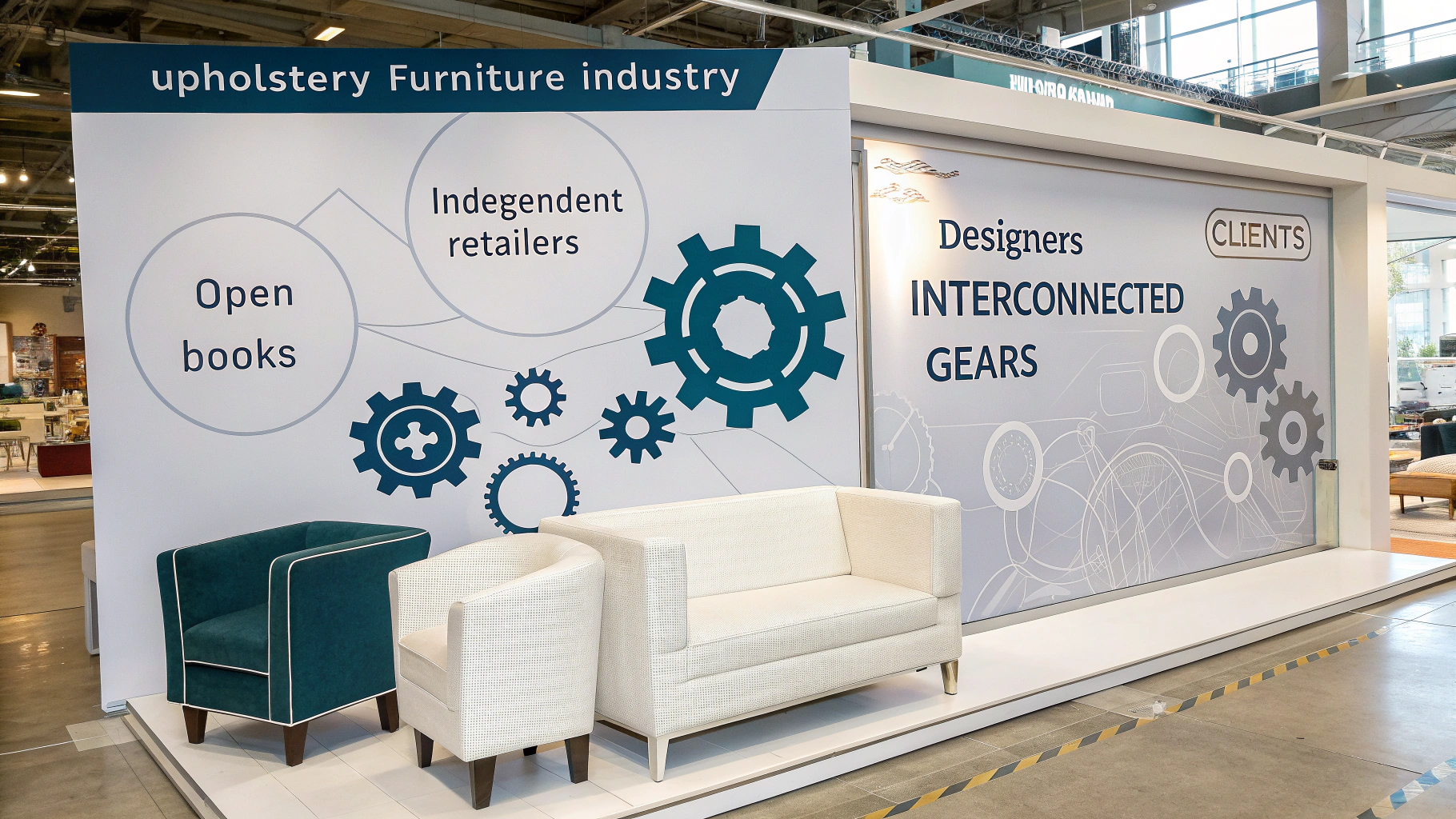
Enhancing Supply Chain Transparency and Trust
Traditional supply chains often leave stakeholders in the dark, creating mistrust. Our engagement model offers full transparency, showcasing every step from sourcing to delivery. By integrating transparency, one of our partners in France saw improved client satisfaction rates, correlating with an uptick in sales and customer loyalty.
Conclusion
In the rapidly evolving furniture industry, staying ahead requires not just innovation, but also authenticity, flexibility, and sustainability. At Starborn Furniture, we address these needs head-on, providing our partners with strategies and solutions that foster growth and success. Partner with us to discover the difference we can make together.
-
Explore the significance of the BSCI ethical audit in promoting social and environmental responsibility in businesses. ↩
-
Learn about EN 12520/12521 standards to understand their role in ensuring furniture safety and quality compliance. ↩ ↩
-
Discover strategies for building a sustainable supply chain that benefits both the environment and business growth. ↩

